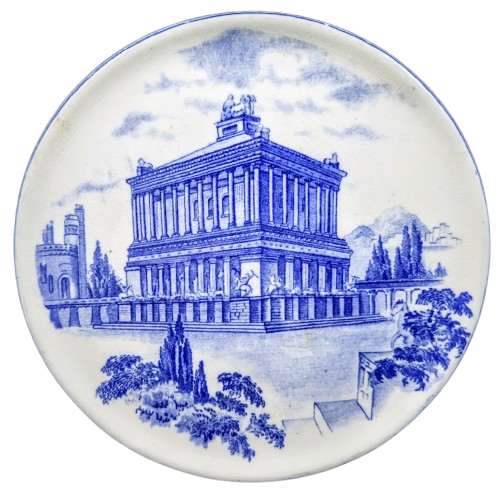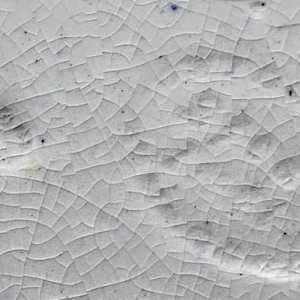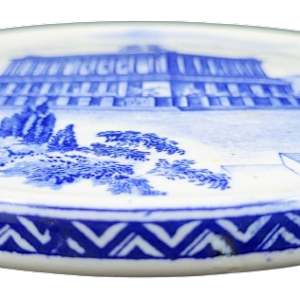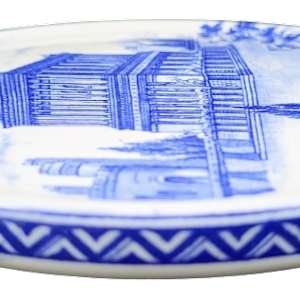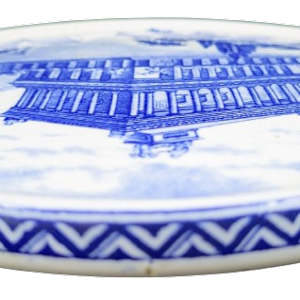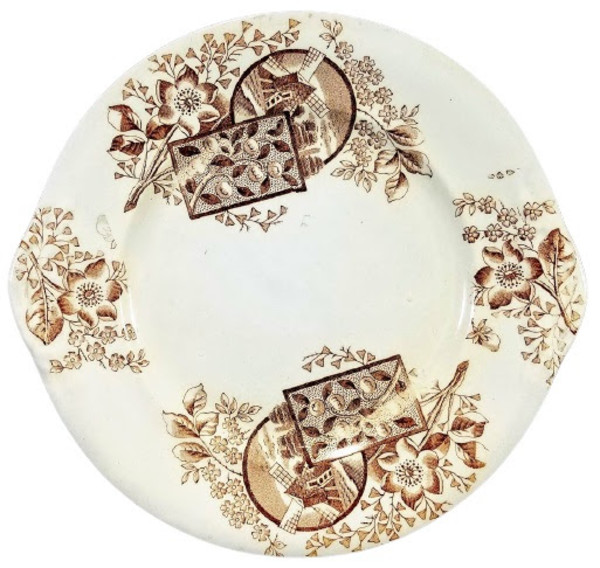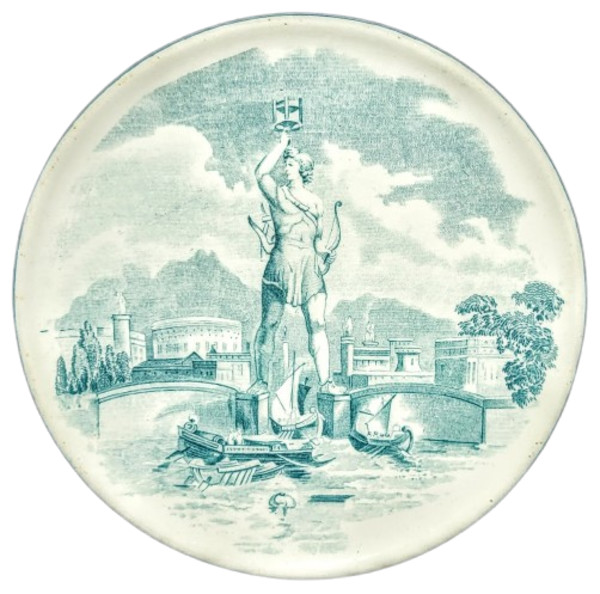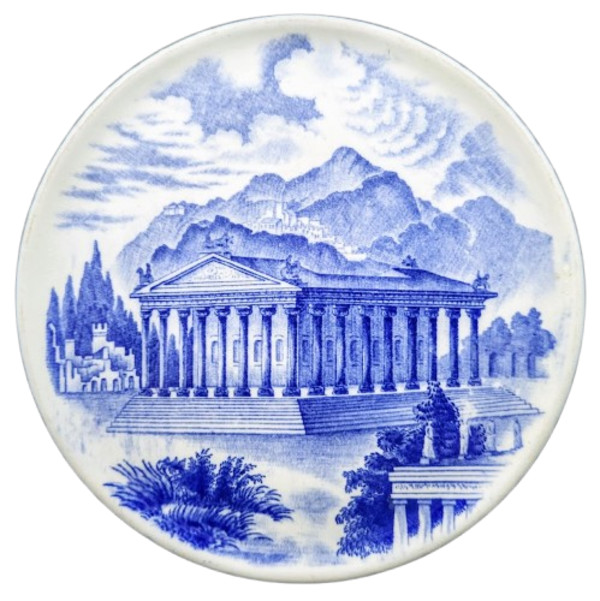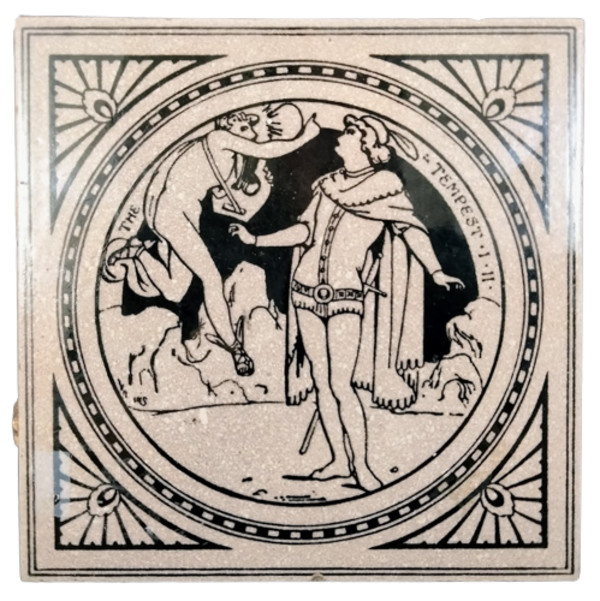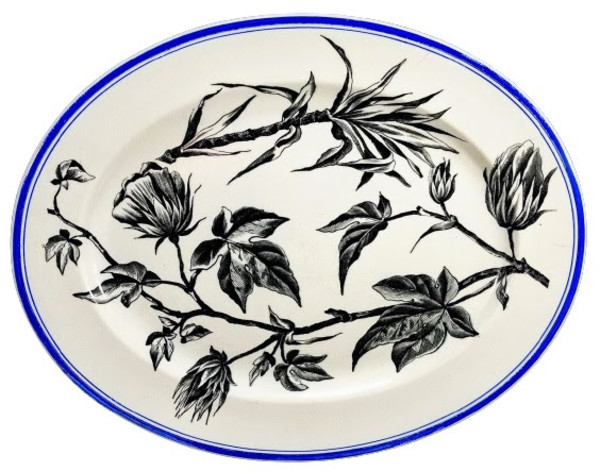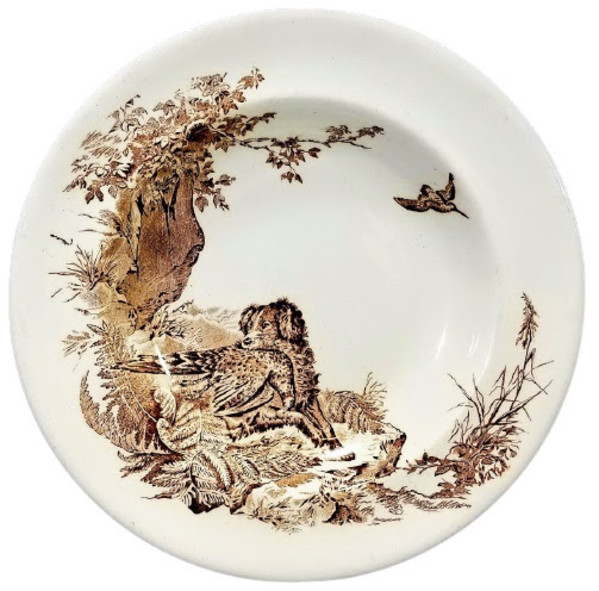- W. T. Copeland & Sons
- The Mausoleum at Halicarnassus, Rd. 1898
- Earthenware
- 6.25 x 6.25 in (15.88 x 15.88 cm)
-
Not For Sale
Tile, 6.25 inches diameter. Blue transfer. Printed and impressed maker's marks for W. T. Copeland & Sons. The Rd. No. indicates a pattern registration date of 1898. This is one in a series of patterns of the Seven Wonders of the Ancient World. The traditional list of the Seven Wonders was originally compiled by Philo of Byzantium in 225 BCE, as a selection of man-made sights for Greek travelers or tourists to see around the Mediterranean rim. The Mausoleum was the tomb of Mausolus, a satrap of the Persian empire, and was built in the 4th century BC at Halicarnassus, present day Bodrum on the Mediterranean coast of Turkey.
W. T. Copeland was the only son of William Copeland, partner of Josiah Spode in the Stoke Potteries, of Staffordshire and of Portugal Street, London. He succeeded his father as head of the porcelain firm in Portugal Street, London and eventually bought out the interests of the Spode family in the business in the Potteries and London. He ran the business in partnership with Thomas Garrett between 1833 and 1847. After the dissolution of the Copeland and Garrett partnership, it traded as W.T. Copeland and Sons. (1847-1976). In 1866 Copeland was appointed china and glass manufacturer to the Prince of Wales.
- Subject Matter: Classical Inspired
- Collections: British Tiles, British Transferware (1800-1930), W. T. Copeland & Sons
